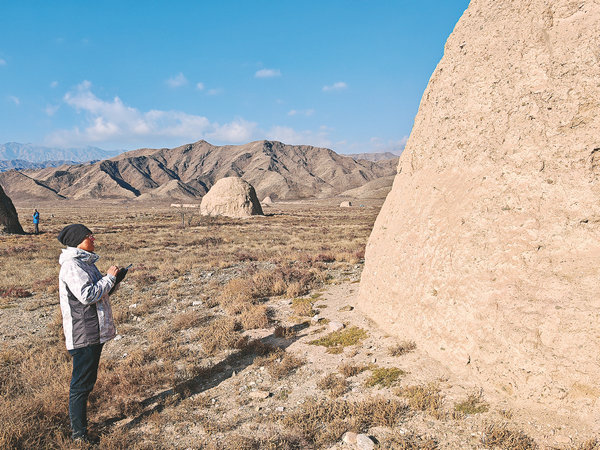

Human efforts
Today, the site is in a new phase of preventive protection. After eliminating the major risks, the site's conditions are closely monitored by human patrols and machines.
Liang Binjie, a member of the management office responsible for patrolling the site, says they generally conduct a patrol every three months. During patrols, they check for base erosion, surface weathering, and cracks appearing on the bodies. They prevent tourism misconduct, such as crossing protective barriers to touch the mounds.
They also installed facilities to monitor the surrounding environment and the remaining relics. Some facilities will sound an alarm when they observe changes in the cracks and will notify someone to check if any measures must be taken. Moreover, three-dimensional scanning and oblique photography by unmanned aerial vehicles are also used, Liang says.
The information collected and other statistics surrounding various aspects of the site's conditions are gathered on a heritage monitoring and early warning platform that was developed by the management office to analyze the site more scientifically.
For example, the site's World Heritage status may bring more visitors to the tomb complex. The platform has calculated the cap at 44,000 people each day. It currently shows that the site receives about 10,000 people a day at most. Therefore, the number of tourists is controllable, ensuring the safety of the heritage, says Ren.
The information on the platform can also automatically form archives that are stored in the management office's archives center. "The archives can quantify our work to track the key points of our work each year," says Ren.
Yang Yi, who is in charge of the archives center, says they have collected over 900 volumes of archives, totaling 50,000 pieces about the tombs. They are collected both digitally and in paper form.
"A good collection of archives can strongly support the protection, management, research and display of the Xixia Imperial Tombs, laying a solid foundation for our future work," says Yang Yi.